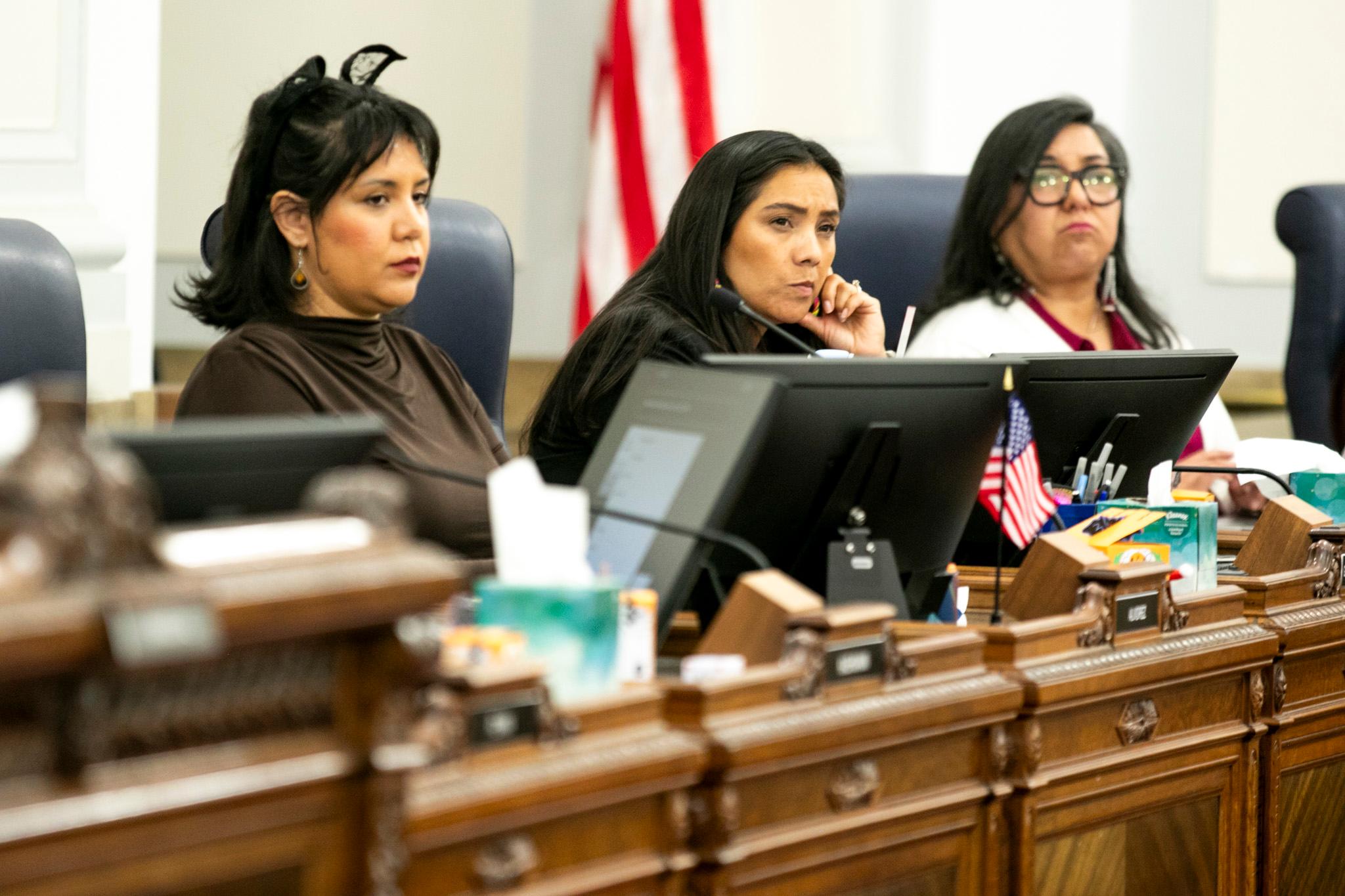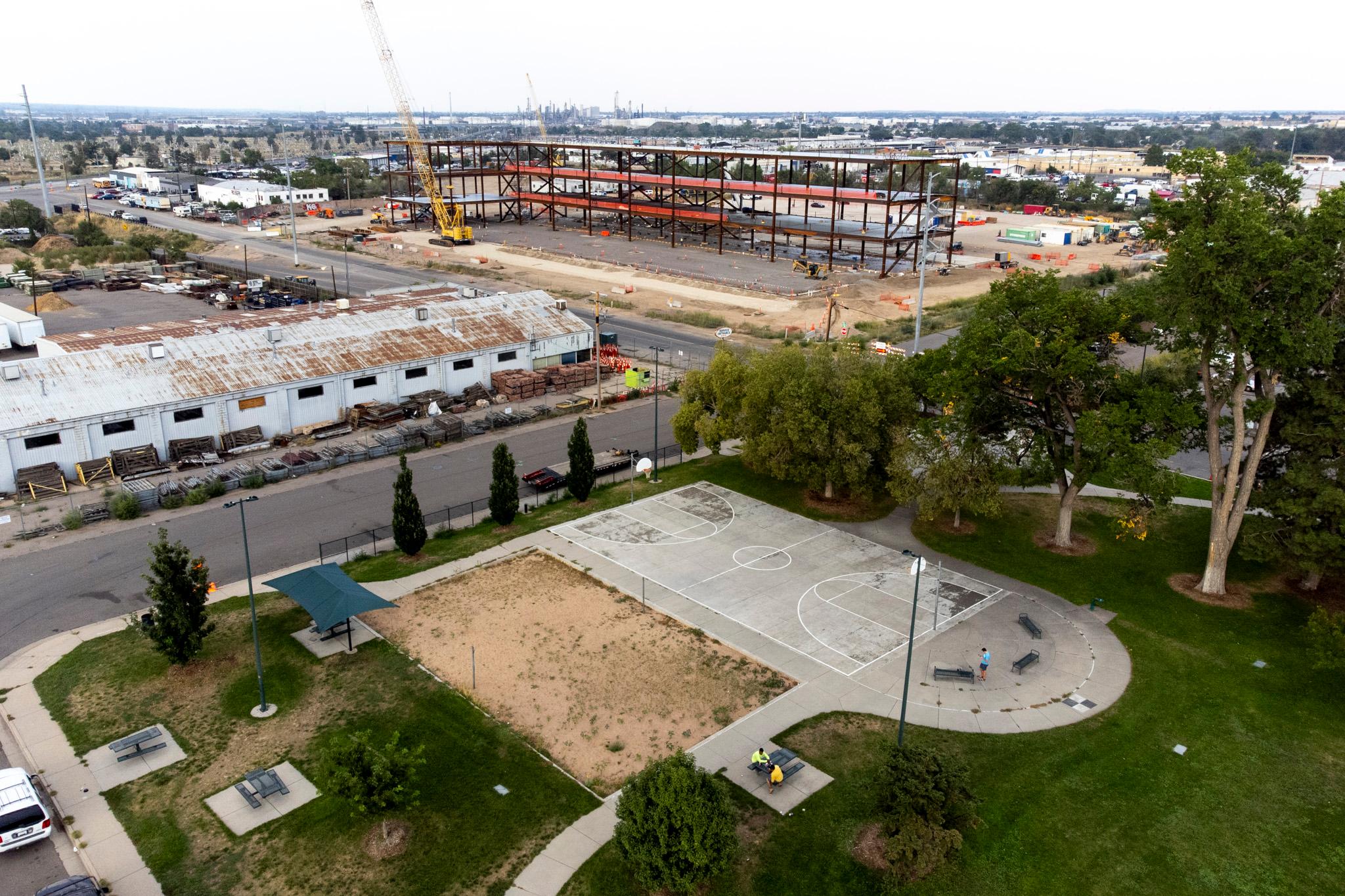A grueling eight-month budgeting process has finally come to a close — with Mayor Mike Johnston’s budget failing to receive a majority of the Denver City Council’s support.
Members were split on the mayor’s $1.66 billion general fund budget on a 6-6 vote. Councilmember Sarah Parady was absent.
But the council’s Monday night vote was largely symbolic. While the council votes on the final budget, the body has no power in this "strong mayor" city to actually stop it. Johnston’s budget would have passed with or without the council’s support.
Still, it was a chance for council members to say they weren’t happy. Even the majority of council members who supported the budget were hardly full-throated in their endorsements. Council President Amanda Sandoval said she was conflicted. While Councilmember Chris Hinds said he would vote yes this year, he threatened a no vote in the future if the process doesn’t change.
Councilmember Diana Romero Campbell agreed: “We are definitely going to have to do it … differently,” she said — with greater transparency and collaboration.
“I've been here six years, and I've really never seen anything like it before,” Councilmember Amanda Sawyer said. “The lack of transparency, the lack of accountability, the lack of information sharing is incredibly frustrating. The lack of respect for our independent agencies is shocking.”
Johnston has consistently defended his process as accountable, and his spokesperson Jon Ewing points to how the mayor’s administration has fielded more than 600 questions from council members.
“Budgeting is a lot of fun in good times,” Councilmember Kevin Flynn said. “It's a lot of fun when the economy is great, and it's not so much fun in times like this.”
While he expressed a desire for more collaboration between the mayor and the council, he also said, “if we want collaboration, we should collaborate.”
Councilmembers Sawyer, Stacie Gilmore, Shontel Lewis, Paul Kashmann, Serena Gonzales-Gutierrez and Flor Alvidrez voted against the budget.
Sandoval, Romero Campbell, Hinds, Jamie Torres, Darrell Watson and Flynn voted yes.
A vote that hardly matters
The mayor’s administration largely controls the budget process, including writing the entire first draft.
The council does get some influence: Last week, Mayor Mike Johnston approved all of the full council’s final round of amendments, adding up to several million dollars — a small fraction of the total budget.
But the council members had little power to stop the full, final proposal this week. Kashmann expressed concerns about how strong-mayor cities like Denver turn their councils into a largely “figurehead role.”
“It's been clear for the 10 years I've been on city council that the strong-mayor city budget process is a mess,” Kashmann said.
Sawyer, Lewis and Gilmore are working to propose legislation that would change how the budget is approved.
“I do not think the citizens of Denver are well served by it as it exists now in charter, and we'll be working on ways that we can address these shortcomings,” Lewis said.
How Denver got here
The 2026 budget was written to reduce the city’s spending by $200 million compared to projections, which Johnston said was necessary because of a weakening economy and years of growing city spending.
The city’s general fund expenditures now are set to shrink by about $64 million in 2026 compared to 2025. The vast majority of city departments will see budget cuts — some more than 20 percent — in terms of general fund support.
Over the summer, the city saw 171 layoffs, hundreds of unfilled positions eliminated and other cuts.
The council wrangled with the mayor’s office over funding for the Clerk and Recorder’s Office, the Support Team Assisted Response program, workforce development and funding for youth programming – and ultimately won many of those fights, though they couldn’t change the big picture.
Now that Johnston’s budget is finalized, if not approved by the city council, he will try to maintain his promise to protect core city services through next year — even in the face of a topsy-turvy economy, a frustrated city workforce, a tense relationship with some council members, and a fraught relationship with the federal government.












